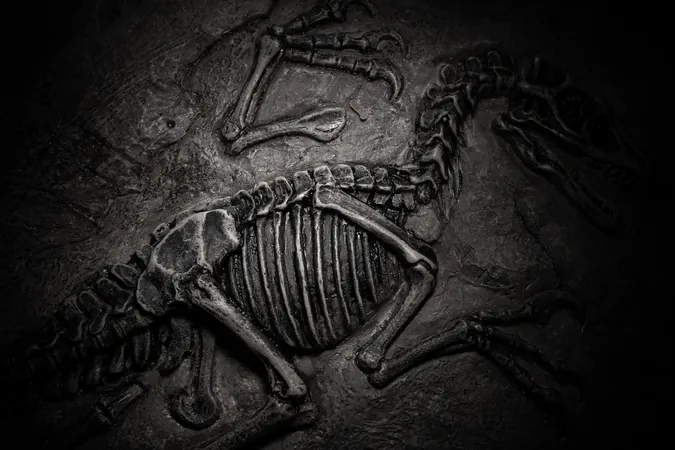
Shocking New Findings: PSC Patients Face Higher Transplant and Mortality Risks Compared to PBC and Autoimmune Hepatitis
2024-12-23
Author: Benjamin
Introduction
New research has unveiled alarming disparities in health outcomes for patients suffering from Primary Sclerosing Cholangitis (PSC) compared to those with Primary Biliary Cholangitis (PBC) and Autoimmune Hepatitis (AIH). This groundbreaking study, utilizing data from the Hepascore and Clinical Outcome (HACO) cohort, reveals that PSC patients experience significantly worse overall survival, higher rates of liver-related mortality, and a greater frequency of liver-related complications than their counterparts with PBC and AIH.
Study Design
Doctors conducted a comprehensive retrospective cohort study that included patients diagnosed with AIH, PBC, and PSC within the HACO cohort, a state-wide Australian database tracking chronic liver disease cases. Importantly, those who had already undergone liver transplant or were diagnosed with autoimmune liver disease overlap syndrome were excluded to ensure the integrity of outcomes.
Key Findings
The key endpoints analyzed were overall survival or the necessity for liver transplantation, liver-related deaths, and liver-related complications—defined as conditions like ascites, variceal bleeding, spontaneous bacterial peritonitis, hepatorenal syndrome, or hepatic encephalopathy.
In total, 561 patients were involved in this study: 237 with AIH, 157 with PBC, and 167 with PSC. The median follow-up for each group varied, with PSC patients monitored for an average of 3.5 years, a relatively short window for tracking such progressive diseases.
Shocking Statistics
The findings are startling. Among the 167 PSC patients, there were 57 deaths, with 38 attributed to liver-related causes. In comparison, the PBC group had only 12 deaths, with eight being liver-related, and the AIH cohort experienced 21 deaths with only nine being liver-related. Notably, PSC patients showed the lowest five-year transplant-free survival rate at 61%, contrasted starkly with 92% for PBC and 88% for AIH.
Predictors of Outcomes
Results also highlighted the Liver Outcome Score (LOS) and Hepascore as critical independent predictors of survival and complications, particularly in PSC patients, where Hepascore directly influenced liver-related mortality.
Limitations and Future Directions
Despite these significant revelations, researchers did acknowledge limitations, such as the study's retrospective design, the absence of treatment data, and a fairly short follow-up period. They cautioned that larger validation studies are essential to reinforce these findings and optimize care for patients with autoimmune liver diseases.
Conclusion
The conclusion drawn from this research is tempering optimism with urgency: patients diagnosed with PSC are at a greater risk in comparison to those with AIH and PBC. Further studies utilizing LOS as a predictive model could be the key to improving outcomes for these at-risk patients, highlighting an urgent need for enhanced medical intervention and monitoring.
Final Thoughts
For those affected by autoimmune liver diseases, staying informed and vigilant is more crucial than ever. Your health could depend on it!









 Brasil (PT)
Brasil (PT)
 Canada (EN)
Canada (EN)
 Chile (ES)
Chile (ES)
 España (ES)
España (ES)
 France (FR)
France (FR)
 Hong Kong (EN)
Hong Kong (EN)
 Italia (IT)
Italia (IT)
 日本 (JA)
日本 (JA)
 Magyarország (HU)
Magyarország (HU)
 Norge (NO)
Norge (NO)
 Polska (PL)
Polska (PL)
 Schweiz (DE)
Schweiz (DE)
 Singapore (EN)
Singapore (EN)
 Sverige (SV)
Sverige (SV)
 Suomi (FI)
Suomi (FI)
 Türkiye (TR)
Türkiye (TR)